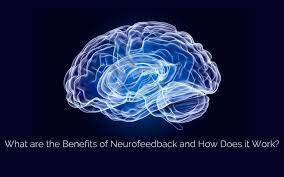Introduction
In an era dominated by technological advancements, our understanding of health has expanded beyond mere physical well-being. The intricate interplay between our mental, emotional, and physical states defines true vitality. This comprehensive perspective has led to the emergence of innovative therapies, among them, neurofeedback therapy. In this article, we will delve into the profound benefits of neurofeedback therapy and its significant role in promoting holistic health.
Understanding Health Beyond the Surface
Health is not merely the absence of disease, but a state of complete physical, mental, and social well-being. Achieving this equilibrium requires a multi-faceted approach that encompasses various dimensions of wellness. While exercise and nutrition are integral, so too are mental and emotional well-being.
Neurofeedback Therapy: An Introduction
Neurofeedback therapy, also known as EEG (Electroencephalogram) Biofeedback, is a non-invasive treatment that aims to regulate brain activity. By providing real-time feedback on brainwave patterns, individuals can learn to self-regulate and optimize their brain function.
The Remarkable Benefits of Neurofeedback Therapy
Enhanced Cognitive Functionality: Neurofeedback therapy has been shown to improve cognitive functions such as attention, memory, and problem-solving skills. This is particularly beneficial for individuals struggling with attention deficit disorders or cognitive decline.
Emotional Regulation: Many mental health disorders are rooted in dysregulated brainwave patterns. Neurofeedback therapy helps in normalizing these patterns, leading to improved emotional stability and resilience. It has shown promise in treating anxiety, depression, and PTSD.
Stress Reduction: Chronic stress can have detrimental effects on both physical and mental health. Neurofeedback therapy teaches individuals how to achieve a state of relaxed alertness, thereby reducing stress levels and promoting a sense of calm.
Improved Sleep Patterns: Quality sleep is fundamental to overall health. Neurofeedback therapy has demonstrated efficacy in treating insomnia and other sleep disorders by regulating brainwave activity associated with restful sleep.
Pain Management: Chronic pain can be debilitating, affecting both physical and mental well-being. Neurofeedback therapy has shown promise in reducing pain perception and increasing pain tolerance, offering a drug-free alternative for pain management.
Optimized Performance: Athletes, artists, and professionals seeking to enhance their performance can benefit from neurofeedback therapy. By optimizing brain function, individuals can achieve higher levels of focus, creativity, and productivity.
Enhanced Neuroplasticity: The brain’s ability to adapt and rewire itself, known as neuroplasticity, is a crucial aspect of learning and recovery. Neurofeedback therapy enhances neuroplasticity, making it an effective tool in rehabilitation after brain injuries.
Customized Treatment Plans: One of the key advantages of neurofeedback therapy is its personalized approach. Each session is tailored to the individual’s unique brainwave patterns and specific therapeutic goals.
Embracing a Holistic Approach to Health
Incorporating neurofeedback therapy into a holistic health regimen empowers individuals to take charge of their well-being. By addressing the intricate connections between mind and body, this therapy complements traditional approaches to health, offering a more comprehensive path to vitality.
Expanding on the Benefits of Neurofeedback Therapy
Neurofeedback therapy is a versatile treatment modality with a wide range of benefits that extend beyond the scope of conventional interventions. Let’s delve deeper into some of the remarkable advantages it offers:
Enhanced Cognitive Functionality: The brain is the command center of our body, responsible for regulating cognitive functions like attention, memory, and problem-solving skills. Neurofeedback therapy hones in on these cognitive processes, training the brain to operate at its optimal capacity. This is especially invaluable for individuals dealing with attention deficit disorders or those experiencing age-related cognitive decline.
Empowering Emotional Regulation: Emotional well-being is integral to a person’s overall health. Neurofeedback therapy plays a crucial role in emotional regulation by addressing dysregulated brainwave patterns that often underlie conditions like anxiety, depression, and post-traumatic stress disorder (PTSD). Through targeted sessions, individuals can attain a greater sense of emotional stability and resilience.
Stress Reduction and Improved Resilience: In our fast-paced, modern world, chronic stress has become an epidemic that profoundly impacts both mental and physical health. Neurofeedback therapy equips individuals with the tools to achieve a state of relaxed alertness. This newfound ability to modulate stress levels not only fosters a sense of calm but also enhances resilience in the face of life’s challenges.
Revitalizing Sleep Patterns: Quality sleep is the cornerstone of a healthy life. Neurofeedback therapy has proven highly effective in the treatment of insomnia and other sleep disorders. By influencing brainwave activity associated with restful sleep, this therapy offers a natural and lasting solution for those struggling with sleep disturbances.
Pioneering Pain Management: Chronic pain can be debilitating, impacting a person’s physical and mental well-being. Neurofeedback therapy presents an innovative approach to pain management, effectively reducing pain perception and increasing pain tolerance. This drug-free alternative empowers individuals to take control of their pain and regain their quality of life.
Optimized Performance in Various Fields: Professionals, athletes, and artists alike seek ways to elevate their performance. Neurofeedback therapy is a powerful tool in this pursuit. By fine-tuning brain function, individuals can attain heightened levels of focus, creativity, and productivity. This has profound implications not only in professional endeavors but also in personal growth and achievement.
Fostering Neuroplasticity for Rehabilitation: Neuroplasticity, the brain’s incredible capacity to adapt and rewire itself, is a fundamental aspect of learning and recovery. Neurofeedback therapy capitalizes on this inherent ability, enhancing neuroplasticity and making it an invaluable tool in the rehabilitation process after brain injuries or strokes. This means a brighter outlook for individuals on their journey to recovery and regained functionality.
Personalized Treatment Plans for Targeted Results: A key strength of neurofeedback therapy lies in its tailored approach. Each session is meticulously designed to address the individual’s unique brainwave patterns and specific therapeutic objectives. This ensures that the treatment is not only effective but also optimized for the person’s distinct needs and goals.
Incorporating Neurofeedback into a Holistic Health Journey
Embracing neurofeedback therapy as a pivotal component of a holistic health regimen can be transformative. By acknowledging the intricate connections between mind and body, individuals can forge a path towards vitality that encompasses the full spectrum of their well-being.


